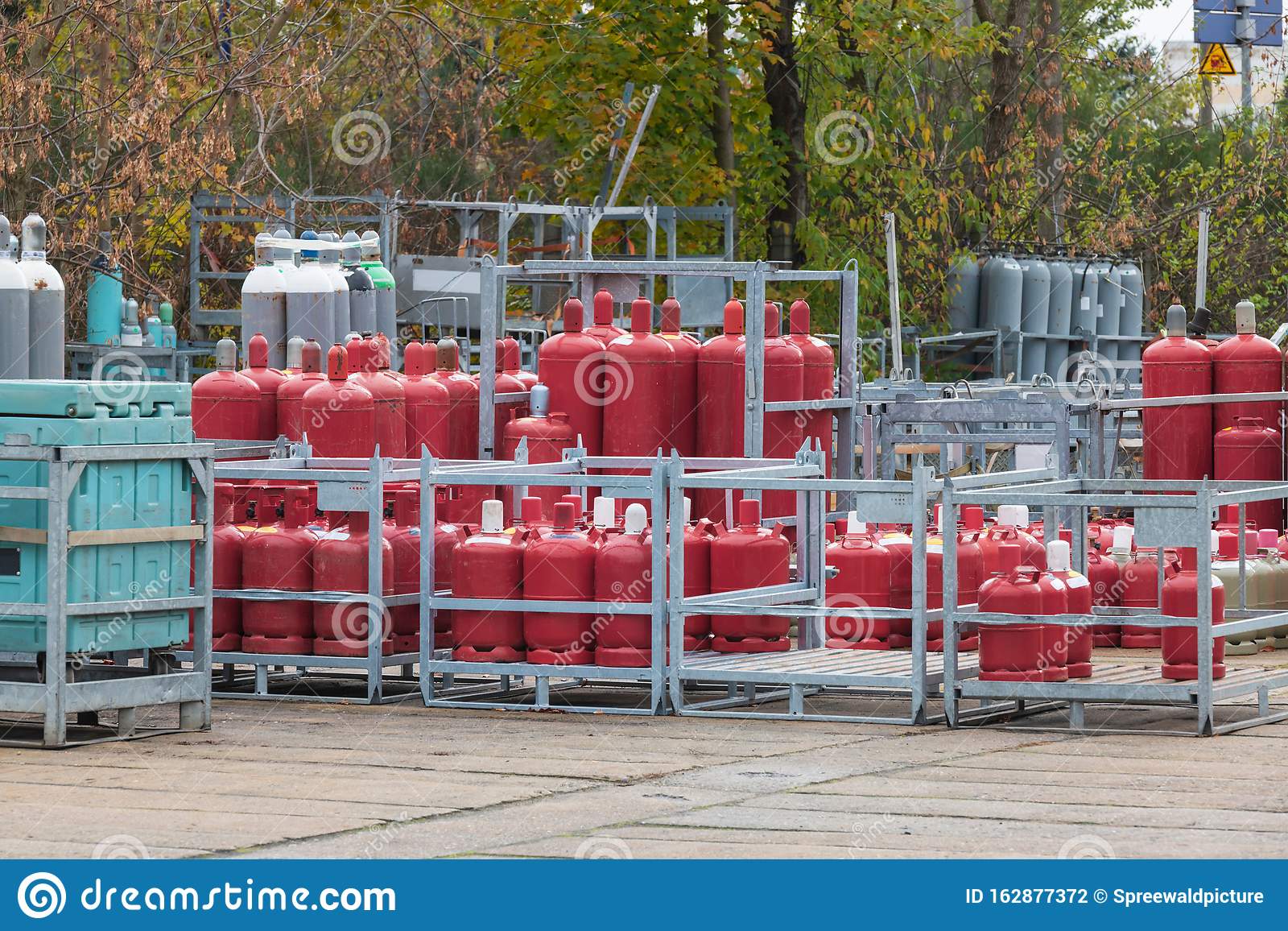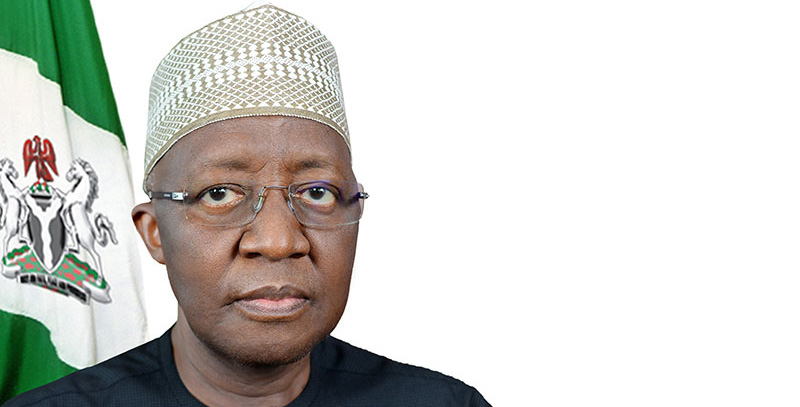Business
NNPC to phase out cylinders, explains rise in cooking gas

Group Managing Director of the Nigerian National Petroleum Corporation, Mallam Mele Kyari, has attributed the hike in prices of cooking gas to challenges being faced in sourcing adequate supply of the commodity.
He also spoke on an imminent plan to phase out gas cylinders and directly supply homes and other end users with the commodity as part of measures to crash the prices and make it continuously available.
He stated this during a visit to the headquarters of the Department of Petroleum Resources (DPR) in Abuja on Tuesday.
“Today, this country is under supplied with gas. I can tell you that we are having difficulty feeding our network across the country with gas, every day; it is a trouble to deliver gas. Once your supply is weak, it will affect pricing,” the NNPC GMD said.
He also said, “The supply mechanism of our LPG is very weak; that is why we are collaborating extensively to make sure that we are able to extract the LPG from our gas resources so that it is made available to the market. Once supply becomes high, definitely, the price will definitely be impacted.”
He, however, said the corporation was working with other sister agencies to make sure that more gas is available into the domestic market thus, making it close to homes.
He stated that the strategy to expand its network of availability would subsequently lead to gas directly delivered to homes of end users.
He said, “If we do this, all cylinders will not be of any use. That is why I don’t see them used in many developed countries. When we are able to power thermal gas plants across the country and very close to the users, ultimately, homes will be run with electric cookers and utensils and that way, you will have less need for cylinders. We are transiting and we will continue to add more volume into the market so that we bring down the prices.”
He explained that the excess availability of the commodity would also aid in stabilising power supply and distribution in the country as thermal plants would supply power generating companies’ gas which are affordable and accessible.
Director/CEO of the DPR, Sarki Auwalu, noted that the increase in availability in gas would engender job employment and help the country to have energy security.
Business
Reversing electricity tariff hike will cost us N3.2 trillion – FG

Reversing electricity tariff hike will cost us N3.2 trillion – FG
The Federal Government has said the reversal of the current increment in electricity tarrif will put more financial pressure on it.
The government said it would need about N3.2 trillion to subsidise and shoulder the cost of electricity this year should the recent hike be canceled.
Sanusi Garba, the chairman, Nigeria Electricity Regulatory Commission (NERC), made this known at a stakeholders’ meeting organised by the House of Representatives committee on power in Abuja on Thursday.
He said that the current investments in the power sector were not enough to guarantee a stable electricity supply nationwide.
He added that if nothing was done to tackle foreign exchange instability and non-payment for gas, the sector would collapse.
Garba disclosed that prior to the tariff review, Electricity Distribution Companies (DisCos) were only obligated to pay 10 per cent of their energy invoices, adding that lack of cash backing for subsidy had created liquidity challenges for the sector.
He added that the inability of the government to pay subsidy led to continuous decline in gas supply and power generation.
READ ALSO:
- Bandits gun down 23 villagers in Kaduna community
- Netizens knock Tinubu aide, Onanuga, over comment on Yahaya Bello arrest
- Boy, 19, nabbed for raping 9-year-old girl in Kwara
He said that the continued decline in the generation and system collapse were largely linked to liquidity challenges.
He said from January 2020 to 2023, the tariff was increased from 55 per cent to 94 per cent of cost recovery.
He added that “the unification of FX and current inflationary pressures were pushing cost reflective tariff to N184/kWh”
“If sitting back and doing nothing is the way to go, it will mean that the National Assembly and the Executive would have to provide about N3.2 trillion to pay for subsidy in 2024,” he said.
Mr Garba said that only N185 billion out of the N645 billion subsidy in 2023 was cash-backed, leaving a funding gap of N459.5 billion.
The vice-chairman of NERC, Musiliu Oseni, also justified the recent tariff increase, saying the increment was needed to save the sector from total collapse.
Rep. Victor Nwokolo, the chairman of the committee, said the goal of the meeting was to address the increase in tariff and the issue of band A and others.
Mr Nwokolo said the officials of NERC and DISCOS had provided useful Information to the committee.
“We have not concluded with them because the Transmission Company of Nigeria is not here and the Generation Companies too.
“From what they have said which is true, is that without the change in tarrif, which was due since 2022, the industry lacks the capital to bring the needed change.
“Of course, the population explosion in Nigeria, is beyond what they have estimated in the past and because they need to expand their own network, they also needed more money, ” he said
Reversing electricity tariff hike will cost us N3.2 trillion – FG
Business
Naira loses N81 to dollar in one day

Naira loses N81 to dollar in one day
The naira lost N81.34 against the US dollar at the foreign exchange market on Thursday
FMDQ data showed that the naira fell to N1,154.08 per dollar on Thursday from N1,072.74 on Wednesday.
This represents a 7.04 per cent loss against the dollar compared to N1,072.74 per dollar traded the previous day.
At the parallel market, the naira also depreciated N1,100 per dollar on Thursday from N1, 040 on Wednesday.
This is the second time the naira would be depreciating against the dollar in three days amid fears of depleting foreign exchange reserves.
Nigeria’s foreign reserves dropped to $32.29 billion as of April 15.
Business
Govt paying N600bn for fuel subsidy monthly — Rainoil CEO

Govt paying N600bn for fuel subsidy monthly — Rainoil CEO
The CEO of Rainoil Limited, Gabriel Ogbechie, has claimed that the federal government resumed the payment of the controversial fuel subsidy following the devaluation of the Naira in the foreign exchange market.
Ogbechie made this statement on Tuesday during the Stanbic IBTC Energy and Infrastructure Breakfast Session held in Lagos.
He pointed out that with Nigeria’s daily fuel usage at 40 million liters and the foreign exchange rate at N1,300, the government’s subsidy per liter of fuel falls between N400 and N500, culminating in a monthly total of approximately N600 billion.
He said; “When Mr. President came in May last year, one of the things he said was that Subsidy is gone. And truly, the subsidy was gone, because immediately the price of fuel moved from 200 to 500 per liter. At that point truly, subsidy was gone.
“During that period, Dollar was exchanging for N460, but a few weeks later, the government devalued the exchange rate. And Dollar moved to about N750. At that point, subsidy was beginning to come back.
READ ALSO:
- North Central Support Group rejects Northern Elders, pledges allegiance to Asiwaju
- Gunmen kidnap 2 FRSC officers along Abakaliki-Enugu highway
- Driver killed, 16 passengers abducted on Abuja-Lokoja road
“The moment the two markets officially closed, officially the market went to about N1,300. At that point, that conversation was out of the window. Subsidy was fully back on petrol. If you want to know where petrol should be, just look at where diesel is. Diesel is about N1,300 and petrol is still selling for N600.
Furthermore, he said that NNPC being the only petrol importer in the country implies that there is an ongoing subsidy, as prices had to be fixed.
Earlier yesterday, the former governor of Kaduna State, Nasir El Rufai, said the federal government is spending more on petrol subsidy than before.
In addition, the Special Adviser to the President on Energy, Mrs. Olu Veŕheijen, said that the Federal Government reserves the right to pay fuel subsidy intermittently to cushion hardship in the country.
“The subsidy was removed on May 29. However, the government has the prerogative to maintain price stability to address social unrest. They reserve the right to intervene.
“If the government feels that it cannot continue to allow prices to fluctuate due to high inflation and exchange rates, the government reserves the right to intervene intermittently and that does not negate the fact that subsidy has been removed,” she said.
Govt paying N600bn for fuel subsidy monthly — Rainoil CEO
-

 News7 days ago
News7 days agoFG gives update on where fleeing Binance executive is hiding
-

 metro7 days ago
metro7 days agoTroops neutralise 188 terrorists, rescue 133 hostages in assault operations
-

 metro7 days ago
metro7 days agoViral video: Edo CP orders trial of officer threatening people with gun
-

 News6 days ago
News6 days agoNLC, TUC jointly propose N615,000 new minimum wage
-

 Sports5 days ago
Sports5 days agoUnited in hot chase for Osimhen amid transfer speculations
-

 News7 days ago
News7 days agoI helped Emefiele to collect $3m cash – Dispatch rider
-

 Business7 days ago
Business7 days agoNaira could trade below ₦1,000/$ – Goldman Sachs
-

 Education7 days ago
Education7 days ago2024 UTME: What students need to do before, during JAMB exam






















